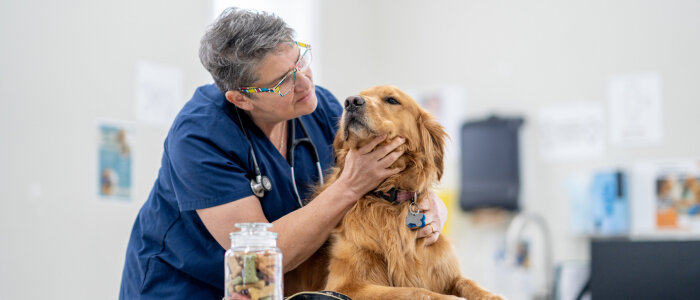As veterinary professionals expand or transition their businesses, transferring tangible assets—like medical equipment and office facilities—is essential. Proper management of these transfers can safeguard the practice’s value and streamline future transitions, ultimately securing a stable financial and operational groundwork.
At Mahan Law, we regularly advise veterinary professionals nationwide on all aspects of practice management, including asset transfers. Our legal team provides comprehensive guidance throughout the process, from due diligence to the final transaction. Let us help protect and maximize your practice’s assets, setting a solid foundation for your future. Contact us today to get started with an experienced veterinary attorney.
What Are Tangible Assets in A Veterinary Practice?
Tangible assets are essential components of a veterinary practice, such as:
- Medical equipment: X-ray machines, ultrasound equipment, surgical instruments, and other diagnostic tools.
- Office furniture and fixtures: Desks, chairs, waiting room couches, and lighting fixtures.
- Technology systems: Computers, practice management software, and data storage devices.
- Real estate: Clinics and office spaces owned by the practice.
- Vehicles: Mobile clinic vans and other means of transportation for house calls or animal transport.
Recognizing and valuing these assets accurately is crucial for effective practice management and successful asset transfer. At Mahan Law, we ensure that every asset is accurately documented and evaluated to secure your practice’s future stability and growth.
Factors Involved In Veterinary Practice Asset Transfers
Several critical considerations must be evaluated when transferring tangible assets in a veterinary practice to ensure a smooth and legally compliant transaction. These include potential risks such as:
- Ensuring the clear and undisputed transfer of asset titles between parties
- Thorough due diligence review checks to validate the condition and legality of assets, including any encumbrances or liens
- Adhering to local regulations governing asset transfers that vary significantly between jurisdictions
- Professional valuation of the assets for accurate financial planning and tax reporting
- Tax consequences of transferring assets, such as capital gains tax, can affect the practice’s financial health.
Notably, early planning for asset transfers can influence the practice’s operational continuity. Planning transfers around business cycles can minimize disruptions. Moreover, asset transfers can impact long-term strategic goals, such as expansion or downsizing.
Mahan Law guides veterinary professionals through these complex considerations, ensuring each transfer aligns with the practice’s immediate and future objectives, protects its value, and facilitates seamless transitions.
How to Transfer Assets
Transferring the tangible assets of a veterinary practice involves a structured approach to ensure legal accuracy and strategic alignment. Trust Mahan Law to guide you through every step, including:
- Compiling a comprehensive list of all tangible assets, detailing their condition, value, and associated liabilities.
- Enlisting a professional appraiser to assess the fair market value of the assets.
- Preparing all legal documents, such as bills of sale, deeds, and transfer agreements.
- Conducting thorough due diligence to uncover potential legal issues with the assets, such as unresolved liens or disputes.
- Negotiating terms of the transfer with the other party, ensuring all conditions are favorable and reflect the asset’s value and strategic importance to the practice.
- Finalizing the transfer through the execution of legal documents, with both parties’ consent, officially transferring ownership and responsibility.
Our legal team ensures asset transfers adhere to the highest legal standards and serve the practice’s best interests. This careful oversight helps maintain operational continuity and safeguards the practice’s financial health, giving you the peace of mind that your assets are safe.
Common Issues and Solutions
Asset transfers of veterinary practices often encounter common challenges that can complicate the process, such as asset undervaluation and various tax issues. At Mahan Law, we collaborate with valuation experts who are proficient in accurately appraising veterinary equipment and practice assets. Moreover, we offer comprehensive tax planning advice to effectively manage liabilities like capital gains tax that often arise during asset transfers.
Legal disputes can create significant hurdles in the asset transfer process. At Mahan Law, we are well-prepared to handle such situations. We conduct thorough due diligence and ensure that all documentation is clear and detailed, thereby preventing disputes over asset ownership or the condition at the time of transfer.
Our proactive approach and extensive experience handling veterinary practice transactions allow us to provide solutions that protect the practice’s financial and operational interests, ensuring a seamless transfer process.
Transfer Your Veterinary Practice Assets Today
Effective handling of asset transfers is crucial for the stability and growth of your veterinary practice. At Mahan Law, we ensure that every aspect of your asset transfer is professionally managed and expedited. Contact us today to secure your practice’s future with professional guidance you can trust.

